





© DIE ZEIT, 07.05.2009 Nr. 20
THE TIME: What was the very first presentation, that first show, at which you can remember?
Indicate
Liza Minnelli: An experience at which I remember me very clearly there I must been yet very small be, were the filming to an American in Paris. There there was a scene in which I threw confetti on the ballet. Gene Kellys daughter and I were divided for this job. The other children went to the school on the playground, I went always on the Set of my father. Usually the filmings were had to be quiet boring, we, and everyone was concentrated so. But the dance scenes were simply wonderful, I loved it.
TIME: Do and the first song at which you remember?
Minnelli: Did perhaps That Old Black Magic? I lay as an infant under the piano and heard Sammy Davis Jr. to, it was permanent here to guest and a type uncle for me. My father put on also very often disks and heard it with my mother. Music was the love and the business of my parents. And I was raised of small on in addition to deliver a good show.
TIME: What does that exactly mean?
Minnelli: In every show, a spectator is guaranteed there, who has sing hear me never the songs out of Cabaret. At least a! It is the first time and perhaps the last time that it hears the songs. Therefore they simply magnificently must be lectured. There one cannot go through there simply only disinterested.
TIME: What do you perceive, shortly before you go on the stage?
Minnelli: Do before the floodlights concern? (Recess) I feel unkonzentriert. But before every premiere, my 82-year-old dance teacher Ron Lewis comes behind the stage and takes my hands. About so. (Minnelli bends itself over the table and takes the hands of its interlocutor). Then it says like in a ritual: "Would concentrate you like a bastard! Gib your best! Live entirely in the moment!" And: "I love you." In this moment, all rattled together, and I become a race horse, that waits on that, that the box opens itself. Ron gives me a small push, and I go out, on the ramp.
TIME: Do you observe the public in the entrance?
Minnelli: I must see the public. Therefore I carry also these long artificial eyelashes. If I view in a certain angle, they are like a screen, that protects my eyes against the floodlight. Thanks to this eyelash, I can see at least the first six spectator rows. I must know, to whom I speak.
TIME: What is the public for you?
Minnelli: A partner. An entrance is like a tennis game. It needs two for that.
TIME: In a tennis game, one can lose.
Minnelli: Only, if one plays around points. If one plays on the other hand to spend around jointly a good time… it does not concern me a victory.
TIME: About what is it going you?
Minnelli: Around a type conversation. Every single song is an exchange with the public. To be sure with the difference that I do not speak about the stage as Liza Minnelli.
TIME: Who are you on the stage?
Minnelli: I am always another. The respective woman who sings the song. I write down all: Who is the person who sings this song? Which hair color has it? What does it have before eyes? Where does it live? What is exactly in its refrigerator? Does it have children? What happened to this a precise moment in which the song begins? Only if I am entire in this person, I can sing the song convincing.
TIME: Do you know after the entrance whether you were good or bad?
Side 3/8
Minnelli: No. Because I disappear totally in the stage persons, I never know exactly how I was in the evening. Whenever I of the stage would come – and equal whether the people simply only claps or whether it it of its chairs tears ask –, each time I: "How was I?" Because I am there above vis-à-vis my own person like a horse with shy lids. And only thanks to these shy lids, I can sing how I sing. I learned that of Charles Aznavour, my mentor and friend, my large example.
TIME: Can you describe this horse existence a few?
Minnelli: I quietly can show it you, for the people at the next table feel disturbed otherwise. (Sings) "it it very clear our love is here to stay." (sings more retained) "it it very clear our love is here to stay." After much happened: (Sings melancholy) "it it very clear our love is here to stay." Aznavour taught me the shades. When I saw it for the first time on the stage, thought I, I die. Who is this French type? What does there happen? But simultaneously I knew: I want exactly that also. I am namely no actual good singer. I am a good dancer and a good actress. An actress in the music. Thanks to Aznavour. In my new show, I sing its song What Makes a one a one in whom I play a Dragqueen. In this song, I am therefore a woman who plays a man, who plays a woman. If one asks himself, how this person stands and goes and sits, how he moves, one has no time to be on the stage nervously or to observe himself from outside.
TIME: When did you meet Aznavour for the first time?
Minnelli: I was 17 when I went into its concert here in New York. Little later I sang one its songs in my first nightclub program. When I viewed one evenings into the public, I thought: Holy shit, there it sits! After that it came into my wardrobe. And at the next day, it sent me a bouquet of red roses with a white rose in the middle. Until today, we speak at least every two weeks together.
TIME: At that time you lived already alone in New York…
Minnelli: I came already with 15 here. I wanted simply to the Broadway, I wanted to create it alone in New York. And my parents who were separated at that time a long time permitted me, that summers in New York to spend and to go on a drama school. I asked whether I could remain, if I found a job. And I found it: in the small Off-Broadway-show best Foot Forward in the 73rd street. The theater had only eight rows, and I was a small chorus girl. Christopher Walken was also there, by the way a crazy tap-dance.
TIME: How does one live with 15 in such a city?
Minnelli: In a hotel for young ladies. The lobby was fuller boy with flowers. But not for me. Yet I came through me very well. Only unfortunately my parents changed its opinion and wanted to send me suddenly for at least a year on the College. Probably they had a bad conscience because I was not able to go as a child correctly to the school.
TIME: Why not?
Minnelli: I so often had to change, permanently moved there we – sometimes also because my mother was able to pay the hotel no longer. Altogether I was on 20, perhaps 22 schools. I have not even a Highschoolabschluss. In any case they sent me on that (it stretches the nose highly and speaks exaggerated blasiert) : Sorbonne. I could were however quite no French that overfills were classes, all other girls much older and more stylishly. I was this kid from Hollywood, and they regarded, as would be I apiece of sh… therefore remained me I alone in my room and read the entire time. But then one of these calls of my mother that wanted came, that I come home, because she needed me. One of these calls in which it told that one would force it to this or that, that a song text would not fit, that one would drive it into the insanity. Normally I tried in the age, to get such emergency call rid of, but this time came I home immediately. And after that permitted it me to go finally to New York. I had won!
TIME: You never responsibly made your mother for your own crises and falls.
Minnelli: Why did I should also?
TIME: If one gets in rows nervous breakdowns and suicide attempt of the own mother, if one replaces as a small child the contents of pill capsules by sugar, so that the mother full pumps herself not again with Valium or incite means, one could be tried, to reproach this mother later a few things.
Minnelli: I found it however never good to show with the finger on other. I never wanted to be victim, but rather a fighter. It occurs again and again that older women, who grew up with the songs and films of Judy cooked country, close and say, on me, that I would be exactly so like my mother. Then I am thankful politely for the compliment. But if the people really would view there, if they would look at the roll, that my mother played publicly, but also privately and of which she knew, that she played it, would see it a victim.
TIME: They said once: If you have a bad memory, they circumscribe simply.
Minnelli: I do also.
TIME: Is that not displacement?
Minnelli: I served' t give a shit. One can change what happened, no longer. If one has always a foot in that yesterday, and a foot in the morning, shears one himself a dirt around that today. I am in the meantime old enough to mean over survival strategies to stand. And I experienced a few things until I was so far. One must go through there through these bad experiences – and not drum around, I tried that namely also. One must through all through – and go on the other side. If one cannot that, one should circumscribe also nothing. For that would be then displacement.
TIME: They went around always very openly with your crises and breakdowns.
Side 5/8
Minnelli: They let also only heavily hide sometimes.
TIME: What was your wildest time?
Minnelli: Probably the seventies. 1976 when I turned with Martin Scorsese New York, New York, and the years after that. I worked turned endlessly much in this time, films, at the Broadway geackert, we went out much and celebrated. We had a quantity of joke what one should not forget. (Recess) seeing you: If you order yourself now two Martinis, you are conducted perhaps a little. If I would order myself now two Martinis, I would go from like a rocket. Wrrrommm! (You rises and tears the arms highly. At the same time the restaurant bank tips over forward). One would have to screw on oh, the thing really once. Can Honey, go we shortly out? I would smoke gladly a cigarette. Are you dressed also warmly enough, Honey?
(As a Minnelli before the restaurant smokes, revolve immediately according to passerby its over. A woman stares it unconcealed at).
TIME: Do you disturb that actually?
Minnelli: No, if the people would stare at me no longer, would be named there yes that I work no longer. These people feel with me somehow trusted. They know the songs of my mother and saw the musicals of my father. They think that I belong to its family. And perhaps they are also my family. On a type in any case. Normally I carry a baseball cap if I go through the streets.
TIME: Do you live here in the vicinity?
Minnelli: Yes, there over there, (makes one vaguely hand movement to the Lexington Avenue). I love this quarter with its brick houses and old restaurant. Many people find the city too quickly, too stressful, too ruthlessly. And it agrees runs also, here every like a D train around. But that New York have at least a goal. It causes, would have as here every mission one. In Hollywood, that is differently. There they stare at itself everyone only mutually. New York love I.
TIME: How did your city change since the economic crisis?
Minnelli: One does not see it on the first view. But there are more and more to-sell-signs. And even the persons, that in that send live buildings here in the area, go to supermarkets outside of the city in order to buy dog lining or paper handkerchief. There all is much cheap. In my house, a woman, who was until recently a wealthy person out of Palm Beach, lives. Now it distributes advertisement slip of paper in a department store. God would be thanks to had I always enough money in order to have to make me around so something no worries.
Side 6/8
TIME: Can we let the Zigarettenstummel here before the door?
Minnelli: Honey, that is New York.
(In the restaurant Minnelli is addressed of two men and is asked for a photo: "Otherwise never believe us our women that we with Liza Minnelli in the restaurant waren!" Minnelli reacts politely and sets a radiating show smile for the photo on)
TIME: Who is you dearest song clerks?
Minnelli: Fred Ebb and John Kander were wonderful as a Texter and composer. And its New York, New York, the title song of Scorseses film, is simple a magnificent song.
TIME: Did it annoy you at that time that the song became first three year after the film through Frank Sinatra the world hit?
Minnelli: But no, so I do not think. Frankie and I sang New York, New York also repeatedly together. There are other songs that have to do much more with me. Fred Ebb really invented me. Through its songs, I had the feeling to find to a language. It was like poetry, that one understands and perceives. Clearly, simply, deeply, on the point. When I heard Maybe This Time for the first time, the one enlightenment was.
TIME: Do you feel the Cabaret -hero Sally Bowles near?
Minnelli: It wants to be accepted and loved around every price. A star wants to be you. I had the feeling that I knew Sally Bowles already long, before I played it. In Fosses film quaked sees one Sallys weakness. One sees how shaken it is, when its father transfers it. It is not simply only a through cracked personality. It does not let lower get herself. It is a fighter.
TIME: You had your first film roll 1949 when three-year in a film with Judy cooked country. How very must one fight in order to remain over so many years in the business?
Side 7/8
Minnelli: I never saw that as a battle. The Pet Shop Boys wanted to receive end of the eighty for example actually only a song with me, but then we laughed so much together that they made the entire album with me. During the day I was stood with the Pet Shop Boys in the studio, evenings I with Frank Sinatra and Sammy Davis Jr. at the other end of the city on the stage. That was a Spagat between two Showkulturen.
TIME: What do you or Frank Sinatra of current entertainers distinguish?
Minnelli: The training. One correctly can learn the Showbiz no longer so how Sinatra and I learned it. In this city, there was a giant quantity in Downtown minutely small nightclubs where we were able to learn kids the craft. All these places disappeared. Is goods, there comes in yet the Actor’s it studio at which I teach also, but who there already? It does not lie at the young people, it lies that they are instructed no longer to the race horse. Cold or flu – equal, one must remain there above on the stage. If one is sick, one does not think: Oh ever, my hips hurt, could I me only set. One thinks: Hopefully I am tonight nevertheless good! All for the show.
TIME: They died already once on the stage.
Minnelli: Alas really, on what then?
TIME: At a knife in the breast, in the Muppet show. Your last words at Kermit were: "Greet you the Broadway of me."
Minnelli: Give my regards to Broadway! That is a song of George M. Cohan. Do you know it? (Sings quietly) "And say that I' ll be there never long…" I dear this song. The authors of the Muppet show wrote the dialogue with Kermit. I found it very amusingly.
TIME: What would you yourself say to Kermit if on the stage your last moment had come?
Minnelli: (like out of the pistol shot) I want another moment!
The Gespäch led Katja Nicodemus
Indicate
Liza Minnelli: An experience at which I remember me very clearly there I must been yet very small be, were the filming to an American in Paris. There there was a scene in which I threw confetti on the ballet. Gene Kellys daughter and I were divided for this job. The other children went to the school on the playground, I went always on the Set of my father. Usually the filmings were had to be quiet boring, we, and everyone was concentrated so. But the dance scenes were simply wonderful, I loved it.
TIME: Do and the first song at which you remember?
Minnelli: Did perhaps That Old Black Magic? I lay as an infant under the piano and heard Sammy Davis Jr. to, it was permanent here to guest and a type uncle for me. My father put on also very often disks and heard it with my mother. Music was the love and the business of my parents. And I was raised of small on in addition to deliver a good show.
TIME: What does that exactly mean?
Minnelli: In every show, a spectator is guaranteed there, who has sing hear me never the songs out of Cabaret. At least a! It is the first time and perhaps the last time that it hears the songs. Therefore they simply magnificently must be lectured. There one cannot go through there simply only disinterested.
TIME: What do you perceive, shortly before you go on the stage?
Minnelli: Do before the floodlights concern? (Recess) I feel unkonzentriert. But before every premiere, my 82-year-old dance teacher Ron Lewis comes behind the stage and takes my hands. About so. (Minnelli bends itself over the table and takes the hands of its interlocutor). Then it says like in a ritual: "Would concentrate you like a bastard! Gib your best! Live entirely in the moment!" And: "I love you." In this moment, all rattled together, and I become a race horse, that waits on that, that the box opens itself. Ron gives me a small push, and I go out, on the ramp.
TIME: Do you observe the public in the entrance?
Minnelli: I must see the public. Therefore I carry also these long artificial eyelashes. If I view in a certain angle, they are like a screen, that protects my eyes against the floodlight. Thanks to this eyelash, I can see at least the first six spectator rows. I must know, to whom I speak.
TIME: What is the public for you?
Minnelli: A partner. An entrance is like a tennis game. It needs two for that.
TIME: In a tennis game, one can lose.
Minnelli: Only, if one plays around points. If one plays on the other hand to spend around jointly a good time… it does not concern me a victory.
TIME: About what is it going you?
Minnelli: Around a type conversation. Every single song is an exchange with the public. To be sure with the difference that I do not speak about the stage as Liza Minnelli.
TIME: Who are you on the stage?
Minnelli: I am always another. The respective woman who sings the song. I write down all: Who is the person who sings this song? Which hair color has it? What does it have before eyes? Where does it live? What is exactly in its refrigerator? Does it have children? What happened to this a precise moment in which the song begins? Only if I am entire in this person, I can sing the song convincing.
TIME: Do you know after the entrance whether you were good or bad?
Side 3/8
Minnelli: No. Because I disappear totally in the stage persons, I never know exactly how I was in the evening. Whenever I of the stage would come – and equal whether the people simply only claps or whether it it of its chairs tears ask –, each time I: "How was I?" Because I am there above vis-à-vis my own person like a horse with shy lids. And only thanks to these shy lids, I can sing how I sing. I learned that of Charles Aznavour, my mentor and friend, my large example.
TIME: Can you describe this horse existence a few?
Minnelli: I quietly can show it you, for the people at the next table feel disturbed otherwise. (Sings) "it it very clear our love is here to stay." (sings more retained) "it it very clear our love is here to stay." After much happened: (Sings melancholy) "it it very clear our love is here to stay." Aznavour taught me the shades. When I saw it for the first time on the stage, thought I, I die. Who is this French type? What does there happen? But simultaneously I knew: I want exactly that also. I am namely no actual good singer. I am a good dancer and a good actress. An actress in the music. Thanks to Aznavour. In my new show, I sing its song What Makes a one a one in whom I play a Dragqueen. In this song, I am therefore a woman who plays a man, who plays a woman. If one asks himself, how this person stands and goes and sits, how he moves, one has no time to be on the stage nervously or to observe himself from outside.
TIME: When did you meet Aznavour for the first time?
Minnelli: I was 17 when I went into its concert here in New York. Little later I sang one its songs in my first nightclub program. When I viewed one evenings into the public, I thought: Holy shit, there it sits! After that it came into my wardrobe. And at the next day, it sent me a bouquet of red roses with a white rose in the middle. Until today, we speak at least every two weeks together.
TIME: At that time you lived already alone in New York…
Minnelli: I came already with 15 here. I wanted simply to the Broadway, I wanted to create it alone in New York. And my parents who were separated at that time a long time permitted me, that summers in New York to spend and to go on a drama school. I asked whether I could remain, if I found a job. And I found it: in the small Off-Broadway-show best Foot Forward in the 73rd street. The theater had only eight rows, and I was a small chorus girl. Christopher Walken was also there, by the way a crazy tap-dance.
TIME: How does one live with 15 in such a city?
Minnelli: In a hotel for young ladies. The lobby was fuller boy with flowers. But not for me. Yet I came through me very well. Only unfortunately my parents changed its opinion and wanted to send me suddenly for at least a year on the College. Probably they had a bad conscience because I was not able to go as a child correctly to the school.
TIME: Why not?
Minnelli: I so often had to change, permanently moved there we – sometimes also because my mother was able to pay the hotel no longer. Altogether I was on 20, perhaps 22 schools. I have not even a Highschoolabschluss. In any case they sent me on that (it stretches the nose highly and speaks exaggerated blasiert) : Sorbonne. I could were however quite no French that overfills were classes, all other girls much older and more stylishly. I was this kid from Hollywood, and they regarded, as would be I apiece of sh… therefore remained me I alone in my room and read the entire time. But then one of these calls of my mother that wanted came, that I come home, because she needed me. One of these calls in which it told that one would force it to this or that, that a song text would not fit, that one would drive it into the insanity. Normally I tried in the age, to get such emergency call rid of, but this time came I home immediately. And after that permitted it me to go finally to New York. I had won!
TIME: You never responsibly made your mother for your own crises and falls.
Minnelli: Why did I should also?
TIME: If one gets in rows nervous breakdowns and suicide attempt of the own mother, if one replaces as a small child the contents of pill capsules by sugar, so that the mother full pumps herself not again with Valium or incite means, one could be tried, to reproach this mother later a few things.
Minnelli: I found it however never good to show with the finger on other. I never wanted to be victim, but rather a fighter. It occurs again and again that older women, who grew up with the songs and films of Judy cooked country, close and say, on me, that I would be exactly so like my mother. Then I am thankful politely for the compliment. But if the people really would view there, if they would look at the roll, that my mother played publicly, but also privately and of which she knew, that she played it, would see it a victim.
TIME: They said once: If you have a bad memory, they circumscribe simply.
Minnelli: I do also.
TIME: Is that not displacement?
Minnelli: I served' t give a shit. One can change what happened, no longer. If one has always a foot in that yesterday, and a foot in the morning, shears one himself a dirt around that today. I am in the meantime old enough to mean over survival strategies to stand. And I experienced a few things until I was so far. One must go through there through these bad experiences – and not drum around, I tried that namely also. One must through all through – and go on the other side. If one cannot that, one should circumscribe also nothing. For that would be then displacement.
TIME: They went around always very openly with your crises and breakdowns.
Side 5/8
Minnelli: They let also only heavily hide sometimes.
TIME: What was your wildest time?
Minnelli: Probably the seventies. 1976 when I turned with Martin Scorsese New York, New York, and the years after that. I worked turned endlessly much in this time, films, at the Broadway geackert, we went out much and celebrated. We had a quantity of joke what one should not forget. (Recess) seeing you: If you order yourself now two Martinis, you are conducted perhaps a little. If I would order myself now two Martinis, I would go from like a rocket. Wrrrommm! (You rises and tears the arms highly. At the same time the restaurant bank tips over forward). One would have to screw on oh, the thing really once. Can Honey, go we shortly out? I would smoke gladly a cigarette. Are you dressed also warmly enough, Honey?
(As a Minnelli before the restaurant smokes, revolve immediately according to passerby its over. A woman stares it unconcealed at).
TIME: Do you disturb that actually?
Minnelli: No, if the people would stare at me no longer, would be named there yes that I work no longer. These people feel with me somehow trusted. They know the songs of my mother and saw the musicals of my father. They think that I belong to its family. And perhaps they are also my family. On a type in any case. Normally I carry a baseball cap if I go through the streets.
TIME: Do you live here in the vicinity?
Minnelli: Yes, there over there, (makes one vaguely hand movement to the Lexington Avenue). I love this quarter with its brick houses and old restaurant. Many people find the city too quickly, too stressful, too ruthlessly. And it agrees runs also, here every like a D train around. But that New York have at least a goal. It causes, would have as here every mission one. In Hollywood, that is differently. There they stare at itself everyone only mutually. New York love I.
TIME: How did your city change since the economic crisis?
Minnelli: One does not see it on the first view. But there are more and more to-sell-signs. And even the persons, that in that send live buildings here in the area, go to supermarkets outside of the city in order to buy dog lining or paper handkerchief. There all is much cheap. In my house, a woman, who was until recently a wealthy person out of Palm Beach, lives. Now it distributes advertisement slip of paper in a department store. God would be thanks to had I always enough money in order to have to make me around so something no worries.
Side 6/8
TIME: Can we let the Zigarettenstummel here before the door?
Minnelli: Honey, that is New York.
(In the restaurant Minnelli is addressed of two men and is asked for a photo: "Otherwise never believe us our women that we with Liza Minnelli in the restaurant waren!" Minnelli reacts politely and sets a radiating show smile for the photo on)
TIME: Who is you dearest song clerks?
Minnelli: Fred Ebb and John Kander were wonderful as a Texter and composer. And its New York, New York, the title song of Scorseses film, is simple a magnificent song.
TIME: Did it annoy you at that time that the song became first three year after the film through Frank Sinatra the world hit?
Minnelli: But no, so I do not think. Frankie and I sang New York, New York also repeatedly together. There are other songs that have to do much more with me. Fred Ebb really invented me. Through its songs, I had the feeling to find to a language. It was like poetry, that one understands and perceives. Clearly, simply, deeply, on the point. When I heard Maybe This Time for the first time, the one enlightenment was.
TIME: Do you feel the Cabaret -hero Sally Bowles near?
Minnelli: It wants to be accepted and loved around every price. A star wants to be you. I had the feeling that I knew Sally Bowles already long, before I played it. In Fosses film quaked sees one Sallys weakness. One sees how shaken it is, when its father transfers it. It is not simply only a through cracked personality. It does not let lower get herself. It is a fighter.
TIME: You had your first film roll 1949 when three-year in a film with Judy cooked country. How very must one fight in order to remain over so many years in the business?
Side 7/8
Minnelli: I never saw that as a battle. The Pet Shop Boys wanted to receive end of the eighty for example actually only a song with me, but then we laughed so much together that they made the entire album with me. During the day I was stood with the Pet Shop Boys in the studio, evenings I with Frank Sinatra and Sammy Davis Jr. at the other end of the city on the stage. That was a Spagat between two Showkulturen.
TIME: What do you or Frank Sinatra of current entertainers distinguish?
Minnelli: The training. One correctly can learn the Showbiz no longer so how Sinatra and I learned it. In this city, there was a giant quantity in Downtown minutely small nightclubs where we were able to learn kids the craft. All these places disappeared. Is goods, there comes in yet the Actor’s it studio at which I teach also, but who there already? It does not lie at the young people, it lies that they are instructed no longer to the race horse. Cold or flu – equal, one must remain there above on the stage. If one is sick, one does not think: Oh ever, my hips hurt, could I me only set. One thinks: Hopefully I am tonight nevertheless good! All for the show.
TIME: They died already once on the stage.
Minnelli: Alas really, on what then?
TIME: At a knife in the breast, in the Muppet show. Your last words at Kermit were: "Greet you the Broadway of me."
Minnelli: Give my regards to Broadway! That is a song of George M. Cohan. Do you know it? (Sings quietly) "And say that I' ll be there never long…" I dear this song. The authors of the Muppet show wrote the dialogue with Kermit. I found it very amusingly.
TIME: What would you yourself say to Kermit if on the stage your last moment had come?
Minnelli: (like out of the pistol shot) I want another moment!
The Gespäch led Katja Nicodemus














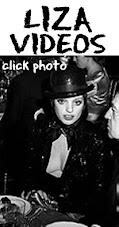




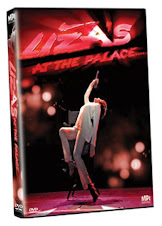






















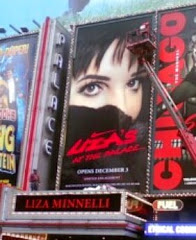




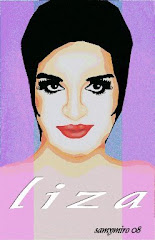


























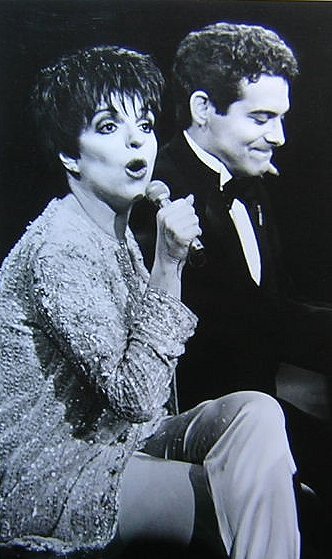


































1 comment:
This is an interesting interview! Congratulations, and thanks again Sam.
Post a Comment